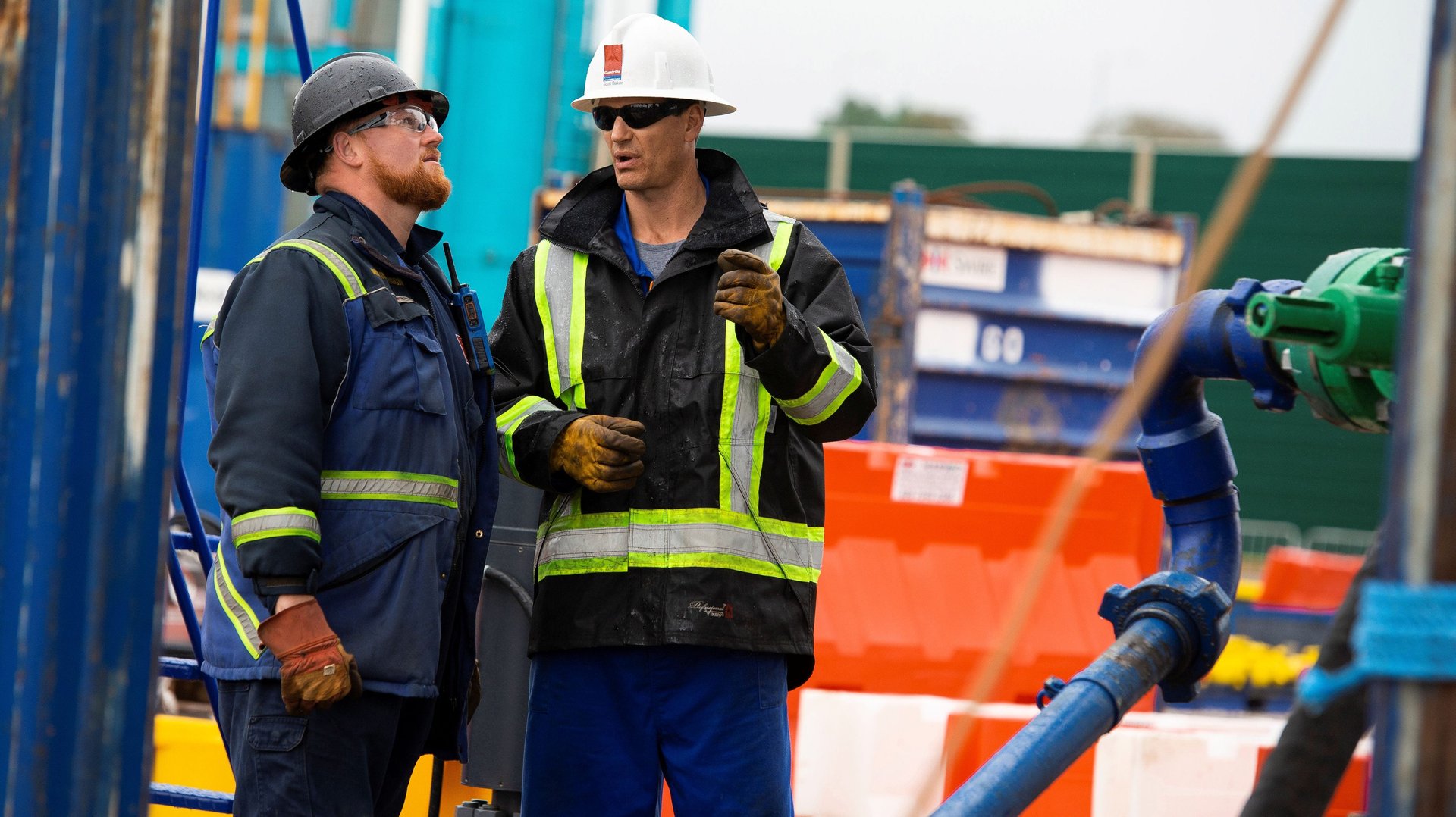Fracking is causing earthquakes in England, again
Cuadrilla, the only company currently attempting to frack for shale gas in the UK, was forced temporarily to halt operations yesterday because it caused a small earthquake.


Cuadrilla, the only company currently attempting to frack for shale gas in the UK, was forced temporarily to halt operations yesterday because it caused a small earthquake.
The tremor measured 1.1 ML (local magnitude), and while it was too small to be felt at ground level, anything over 1ML triggers a “red” event, which requires an 18-hour break in drilling. It was, in fact, the third and largest tremor recorded since the company resumed fracking this month, after several years’ break.
Back in 2011, when the UK’s first fracking experiments took place—also led by Cuadrilla, in a similar area of northwest England near the city of Blackpool—it caused two earthquakes, one of which was big enough to shake objects off shelves. The recent quakes were much smaller by comparison and “a very long way from anything that would cause damage or harm,” Cuadrilla said in a statement.
“Micro seismic events,” as they are called, aren’t unprecedented—tremors too small to be felt are relatively common around the British Isles. But the man-made nature of the latest quakes will create negative press for a company which, when it first began exploratory drilling, caused tremors bad enough they led to a blanket ban on the industry which has only recently been lifted. This visualization of British Geological Survey data is notable for the increased frequency of quakes after fracking resumed on Oct. 13, 2018:
Fracking, the technique used to extract gas from shale formations by forcing pressurized water, sand, and chemicals into rock structures, has transformed the global energy balance. It’s been so successful in the US that it’s a made the world’s largest oil consumer much less dependent on imports.
But in the UK, where the industry is in its infancy, there’s another kind of balance at stake. Britain is a small, crowded island quite unlike the vast, empty expanses in the US where shale oil and gas fields are found. The British anti-fracking lobby is loud, arguing that the UK should not be pursuing expensive fracking technology that will only perpetuate its reliance on fossil fuels at a time when a push towards renewable energy is an increasingly viable alternative. In 2013, protestors clashed with police at a Cuadrilla site in the south of England.
The UK’s Conservative-led government has pushed hard to make fracking possible again, and consistently championed it in the face of opposition. (Lancashire council, for example, voted to oppose the practice but was over-ruled by Westminster.) But a groundswell is growing among locals who are saying, once again, that they don’t want fracking in, or under, their back yards.